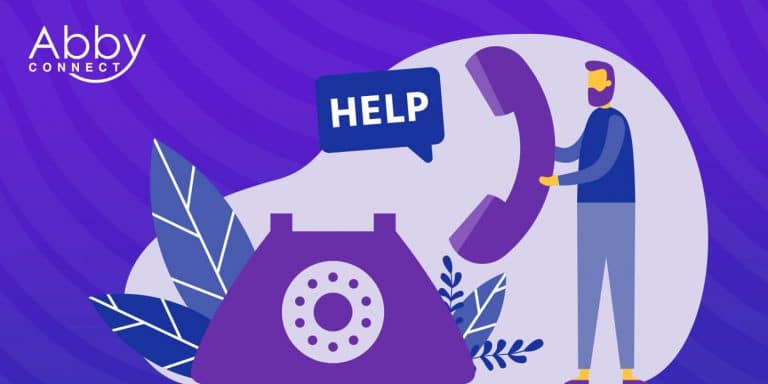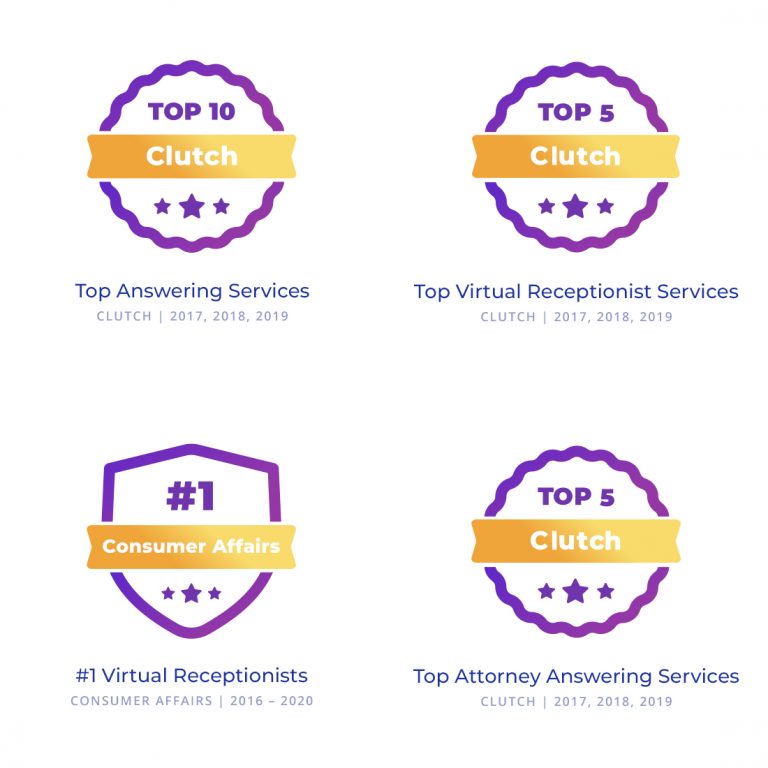
What is Telephobia?
Have you ever noticed how many people prefer texting over talking on the phone?
Telephobia (also called phone phobia or phone anxiety) is an anxiety associated with making phone calls or answering the phone. It can get in the way of personal and professional relationships and increase stress in the workforce. It’s a form of anxiety, but it can be overcome.
Why Do We Avoid the Phone?
Psychologists believe that phone phobia is related to social anxiety, which causes a person to avoid situations where they will need to perform an actionc. Making a call is essentially a performance, and some people dread making a mistake, freezing up, being ridiculed, and/or not being able to perform in front of an audience. Therefore, phone phobia is often classified as a type of performance anxiety, closely related to social anxiety.
People with telephobia often experience guilt and shame over their inability to do something that is so natural for others. To cope with their condition, they often:
- Avoid jobs and careers that require them to speak over the phone
- Avoid calling up friends and family, at the risk of ruining relationships
- Use text messaging and email in place of telephone calls
- Avoid doing business with establishments that do not have live chat or email support
- Avoid social situations, as phone anxiety is linked to social anxiety
Telephobia may be a symptom of different psychological disorders such as performance anxiety, post-traumatic stress disorder, mood disorders, and personality disorders.
How to Overcome Phone Anxiety
Sometimes, phone call anxiety is part of a larger issue that can be worked through with the help of a professional. But sometimes it exists on its own and can be overcome.
Here are our top tips for overcoming your phone call anxiety, from a team that makes hundreds of calls a day.
1. Practice Making Phone Calls
Like so many things, practice makes perfect. Your phone anxiety can’t be overcome without confronting it. Start with small, low priority calls and work your way up.
Call a friend instead of texting. Call a coworker instead of sending a Slack message. Call your mom! This process of desensitization will get you used to talking on the phone. You’ll adjust to the cadence of the phone call. Start to relax instead of tense up.
If you don’t want to start with someone you know, try some impersonal low-risk phone calls. For example:
- Call customer service instead of sending them an email
- Call to make a reservation instead of making one online
- Call your vet or doctor to make an appointment
2. Prepare
You can’t always prepare for the phone calls you’ll receive. But you can prepare for the phone calls you make. If you have an upcoming client, coworker, or vendor call, consider preparing in advance!
While you can’t control the conversation, preparing some talking points or questions puts you in a position to fill any awkward silences and gives you more confidence going into the conversation.
Think about:
- An agenda you’d like to tackle
- Questions you’d like to ask
- Points you’d like to make
Write them all out in advance and have them available going into the phone call for reference. You don’t need to write a whole script, but you can still be prepared! It is uncertainty and anticipation that causes a lot of your phone anxiety. Preparation helps you overcome stress.
3. Pause
Once you start to feel anxious, it can be hard to stop. When the feeling starts, or you start talking too fast, let yourself pause. Take a breath to reset the pace of the conversation.
A simple pause and breath works great. If you feel like you need to say something. Try a filler line like “hm, let me think about that” or “I hadn’t considered that.” It causes a natural pause in the conversation where you can reconsider your next steps. Give yourself a three-breath pause before you jump back into the conversation. This lowers your heart rate and the physical side effects of your phone phobia.
4. Let Yourself Make Mistakes
Okay, okay. We know this is easier said than done. Fear of making mistakes is part of your telephobia. That said, accepting mistakes is part of overcoming your telephobia.
This doesn’t mean you have to ignore any mistakes you make. Instead, think of them as opportunities. When you reflect after a call and think, “Shoot, I shouldn’t have done that.” Instead, try, “Shoot, I shouldn’t have done that. Next time I’m going to do it X way.” Now, instead of just beating yourself up, you’re putting yourself in a position to succeed next time.
Of course, the best-case scenario is that you don’t beat yourself up at all. But that comes with time, practice, and experience. Eventually, you won’t even notice small mistakes in your phone calls!
5. Provide Yourself with the Tools to Succeed
Make your phone calls easier with the right tools. If you have calls you have to make often, like sales or customer service calls, put together a template. This doesn’t have to be a full script, but more of an outline of how these calls generally go. Script your greetings and sign offs and outline everything in between. Then, you can reference this template when preparing for your calls and during your call to ease your phone anxiety.
Your outlines can help you get back on track when you start to get anxious and keep you focused when you’re in the moment.
6. Smile on the Phone
Your callers know whether or not you’re smiling. Smiling affects your tone, and your callers can hear the difference. It creates a better customer service experience for them.
Smiling also helps relieve stress and relax you, creating a better experience for you as well. Smiling, even if it’s fake or forced, reduces stress, increases happiness, and makes you healthier overall. The act of smiling triggers the release of endorphins, serotonin, and dopamine. Medically speaking, smiling will help you relieve your phone anxiety. It’s a win-win.
7. Only Answer the Calls You Need to
If all else fails and telephonia is still impacting you on a day-to-day basis, make sure you’re only answering the calls that matter. Schedule the calls you can and spread them out, so you have recovery time. Screen for spam calls so you aren’t putting yourself through anxiety for nothing.
You can’t avoid the phone entirely, but you can prioritize only the calls that matter.
How Abby Can Help with Your Phone Phobia
Missed calls can cost you money. And a lot of it. But answering every call as it comes in can cause phone anxiety. Abby Connect can help!
Download our “Cost of Missed Calls” eBook to learn more.
With Abby, you get a dedicated team of 5-10 highly-trained receptionists who will answer, transfer, screen, take messages, schedule appointments, provide FAQs, and more – all for a fraction of the cost of a single full-time hire. Our trained team is backed by AI technology and proprietary training, so we can consistently create an excellent first impression, and you only have to talk on the phone when it’ll help your business grow.
We’ll help you overcome your telephobia by taking the hard part off your plate. With a warm transfer from a friendly Abby receptionist, you’ll go into every call prepared to make the best possible impression – without all the extra stress.
